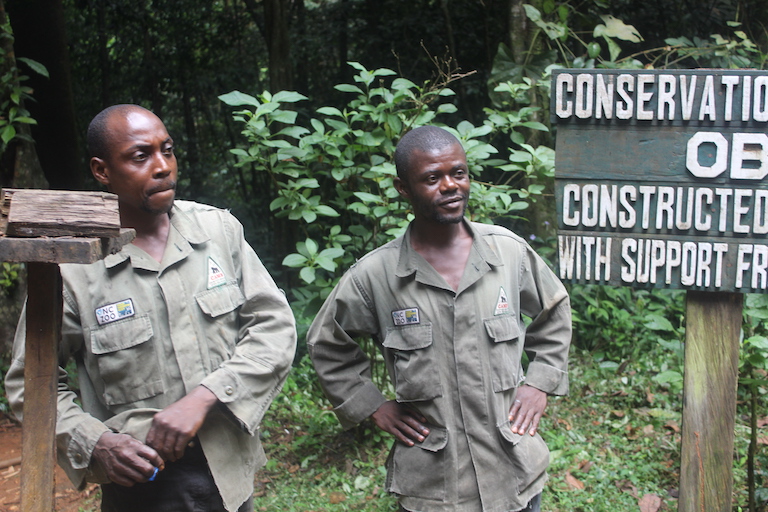The African continent is undergoing accelerating changes. Urban and rural populations alike are growing rapidly, paced by rising demand for things like food and fuel, electricity and construction materials. The continent has also been a site for the extraction of resources propping up the wealthy North for centuries – from palm oil, rubber and slaves, to timber and coltan and crude oil – with often devastating impacts on the environment. Looming ever larger over all of this is global warming, with its growing impacts on harvests, habitat, forests and farmland, rivers and coastlines.
How will the needs and desires of Africa’s people be met while protecting and restoring biodiversity and the ecology on which everything ultimately depends?
There are complex choices ahead for people and policymakers in Africa and beyond. This reporting project will try to strengthen accurate and useful understandings of wildlife and ecosystems, considering both fruitful and harmful connections between conservation and development, and contributing to better protection of the natural world.
Among other things, we’re interested in:
- development pressures: new roads, new industry, new mouths and appetites to feed; adapting agriculture to new conditions; resource extraction
- environmental change: the unwelcome flourishing of new species, the unexpected deaths of centuries-old baobabs and days-old wild dog puppies, the mutually reinforcing effects of global warming and bad environmental practice
- tracing supply chains: trying to create and maintain profitable and environmentally-sound businesses, understanding the impacts of the production of food, fuel, soap and cement; the effects of globalised trade (both legal and otherwise); the costs of poverty and commercialised culture; and more
- sustainability: successful community efforts to revive rivers and forests, understanding where and how efforts to certify sustainability can fall short, and more
- and conservation – we’re especially interested in community conservation and locally-based organisations coming up with new approaches to managing protected areas: ecofeminists defending forests, forests elsewhere defended by the spirits, Tanzanian butterfly farmers, hunters taking on protection of vulnerable species, African government commitments to defend forests against expanding plantations

Credit: Linus Unah, Mongabay
We welcome proposals from experienced journalists for conventional news stories, in-depth features, investigative reports, profiles, case studies. We will also consider proposals for fully edited and produced videos of up to 10 minutes in length. Pitches for video-led stories should also include an expected shot list and interviews.
Opinion pieces, or commentaries, will not be considered for this project and are not paid opportunities. Please share commentary pitches using this form and refer to the submission guidelines here.
Each story will be between 800 and 2,000 words in length and will include quotes from at least three original interviews. Authors will be expected to provide five to 10 publishable photos free for Mongabay’s use to accompany their articles, along with captions and photo credits.
Mongabay will negotiate all fees and contracts on a per-story basis. This series has some funds available for travel. We also offer a small bonus of $25 to journalists who proactively get their stories republished in major third-party print media outlets and on websites that draw more than 100,000 unique visitors per month. Completed stories will be paid on a per word or fixed fee basis, with rates depending primarily on the journalist’s experience. Mongabay.com publishes under an open Creative Commons license that allows for sharing, translation, and re-posting. More information on Mongabay’s editorial standards and practice can be found here.
How to submit your story pitch
To send Mongabay a pitch, please be prepared to also share your resume/portfolio along with three samples of your work. The story pitch should be roughly 500 words in length and include a title for the project. Viable pitches will clearly explain the specific subject you would like to write about in detail and your approach to covering it, and describe a few potential sources. If you are proposing a story that is led by video, please indicate that and include a short description of your video idea. Pitches for video-led stories should also include an expected shot list and interviews.
Please review the complete guidelines on what to include in your pitch here: https://mongabay.org/programs/news/opportunities/
Please submit your pitch here along with your journalism resume and three clips. Pitches should clearly explain the story you would like to tell, a bit of background, and identify possible sources. Applications are welcome in English or French.
Pitches will be considered on a rolling basis.